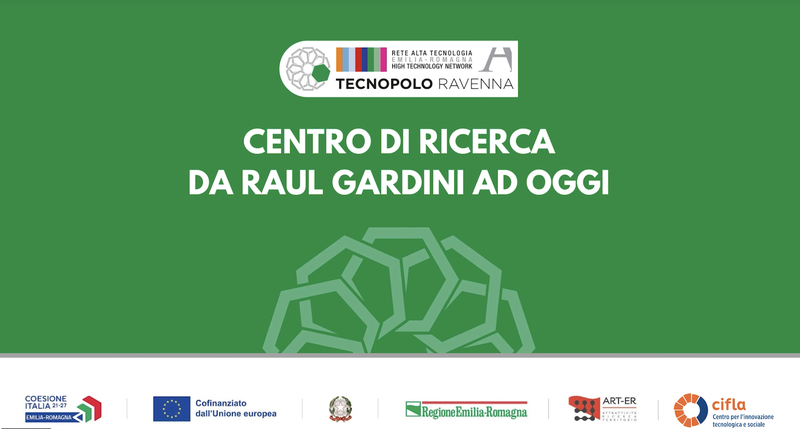PhD openings
Open positions in the doctoral program at the University of Bologna
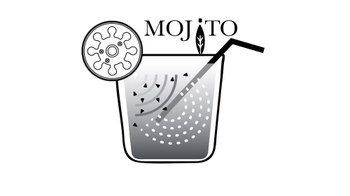
Announcement inviting Expressions of Interest
PhD in Physics: opening for the MOJITO Project
Location: University of Bologna, Ravenna Campus (Italy)
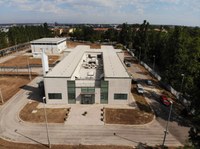
Are you a master graduate interested in devising a revolutionary recipe for a cocktail that combines carbonates and carbonaceous material? Our special "shaker" uses microwaves and inductive heating to achieve a green - sustainable - lime. We serve it with CO₂ capture.
Do you enjoy combining the physics of matter and chemical engineering with industrial chemistry and the skills of a bartender? Then, apply for the PhD position we are offering as part of the EIC Pathfinder project Decarbonized liMe PrOduction through enhanced JoInt dielectric heaTing and waste carbonaceous material additiOn (MOJITO) funded by the Euopean Union - European Innovation Councilm Grant Agreement No 101221957. Starting 1st October 2025, MOJITO will be active for 3 years. The role involves researching the production of low-carbon lime using microwave and inductive heating in an airtight environment. The aim is to make the process 2-10 times more energy efficient and enable CO₂ sequestration.
The University of Bologna's PhD programme offers you the unique opportunity to join a team of professionals working in an international, multicultural environment.
You will benefit from flexible working arrangements to help you balance your research with your personal life. As well as working at the Marina di Ravenna Research Centre, which is located near the Adriatic coast, you will also have the option of working from home up to 20% of the time, provided you can reach Marina di Ravenna within approximately two hours. These conditions allow you to work not only from home, but also in Florence, Venice, the Apennine Mountains, or the historic town of Bologna.
We are looking for a researcher able to contribute ideas and innovation, with one or more of the following tasks:
- contributing to the design, realization, production and improvement of research devices;
- contributing to the definition, in close integration with the design of production processes and application results, of research steps and related treatment cycles;
- contributing to the definition of operating parameters and to the calculation of yields and output quality
- performing laboratory analyses on treated matrices (e.g. biochar, activated carbons, graphite and carbonates), identifying new methodologies and predicting properties.
- contributing to understanding the results of the analyses and the implications for the improvement of the research process;
- contributing to adapting the experimental equipment with possible recourse to external resources: selection and management of purchases of material goods or services;
- suggesting solutions for the continuous improvement of the technological process;
- contributing to managing problems relating to experimentation and plant operation;
- applying and being able to enforce occupational safety regulations.
The PhD student will have tasks closely integrated with the work team. In particular, the student will liaise with the staff in charge of research strategies and with the administrative offices for purchasing and occupational safety. Outside the research team, the student will communicate the research project in International Conferences.
The key qualities to join this call are:
- sound understanding of materials properties, including dielectric properties, thermal properties, microstructure and its influence on material behavior
- familiarity with electromagnetic wave propagation, microwave interactions with materials (e.g., absorption, reflection, transmission)
- knowledge of heat transfer mechanisms (e.g., conduction, convection, radiation), temperature measurement and control techniques
- ability to develop and apply theoretical models to predict material behavior under microwave irradiation and interpret and validate simulation results against experimental data
- level of English: C1
Desirable qualities of the PhD student are:
- knowledge of Maxwell's equations and their application to electromagnetic problems; knowledge of basic techniques: mechanics, electronics, IT; thermal modeling and simulation (e.g., finite element methods)
- experience with microwave heating systems (e.g., magnetrons, wave guides), material characterization techniques (e.g., dielectric spectroscopy, thermal analysis; use of computational tools (e.g., COMSOL, ANSYS) for simulation and analysis; data acquisition and analysis software (e.g., LabVIEW, MATLAB)
- knowledge of and experience in the implementation of experimental devices
- sound preparation in chemistry and/or industrial chemistry and/or engineering
- practical knowledge of or experience in the realization of experimental devices for limestone calcination
- analyzing complex problems and developing creative solutions
- communicating technical results and ideas effectively to both technical and non-technical audiences
In terms of master's degrees and university programs, the following master's degree are preferred:
- Materials Science and Engineering
- Electrical Engineering (with a focus on electromagnetics or microwave engineering)
- Mechanical Engineering (with a focus on thermal engineering or energy systems)
- Physics (with a focus on physics of condensed matter, atoms and molecules or electromagnetism)
- Chemical Engineering (with a focus on process engineering or materials processing)
A monthly grant of € 1,200 will support your stay in Marina di Ravenna. In addition, mission reimbursement + € 10.000 for your participation and staying to international conferences and relevant programmes and training with associated partners, starting from year 2.
Contact: diego.marazza@unibo.it
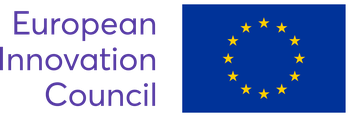
Funded by the European Union. Views and opinions expressed are those of the authors only and do not necessarily reflect those of the European Union or the European Innovation Council. Neither the European Union nor the EIC can be held responsible for them.
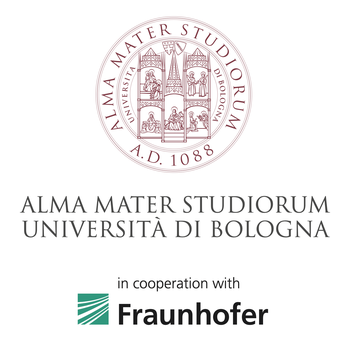
MOJITO: A PROJECT IN COOPERATION WITH FRAUNHOFER
Fraunhofer Institute for Environmental, Safety- and Energy Technology UMSICHT, Institute Branch Sulzbach-Rosenberg is partner in MOJITO
Fraunhofer Institute for Environmental, Safety- and Energy Technology UMSICHT, Institute Branch Sulzbach-Rosenberg and the University of Bologna (UniBo) have transferred the long-standing cooperation between the two institutions into a Fraunhofer Innovation Platform (FIP). The goal of a Fraunhofer Innovation Platform FIP is the transnational transfer and commercialisation of scientific research results. In the cooperation of the participating research institutions, new business models are to be developed from which competitive advantages for industry arise.
Group description and general research lines
A group of 20 (physics, pedology, microbiology, chemistry, environmental science, environmental management) generating around 0,7M€/year turnover and dealing with soil carbon cycle, soil health, biomass treatment, (bio)remediation, regeneration, reuse and recycling of production waste for the development of new products. Recent activities include: study and modelling of carbon sequestration capacity through the use of vegetable chars (biochar) for carbon farming uses and carbon removal, P and N recovery, Fertiliser Product Regulation CMC 3,4,5,14, PFC 1,3,7 development, generation and application of second generation material-based carbons (also in combination with microbes), industrial microbiomes, study of methods for the mapping of residual biomass and waste, long-term experiments for the agronomic application of biochar and other carbon based substrates, soil quality indicators in a life cycle perspective. The research group operates in the Ravenna Campus at the Fraunhofer Innovation Platform for Waste and Energy at UniBO.
Flag project: RERCARB0N – Recovering and Regenerating technologies and materials towards net zero CO2 emissions
